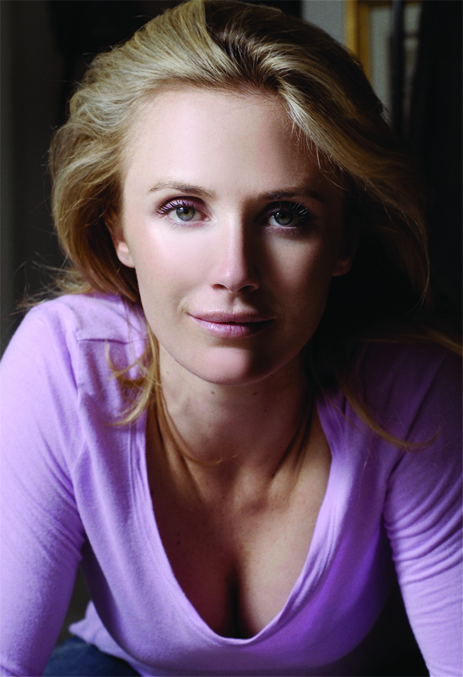PURSE STRINGS
Did you know that the United States is ranked 90th in the world when it comes to women holding positions in national legislatures, and women hold only three percent of clout positions in mainstream media?
Wiles Magazine’s mission is to provide a platform for positive, powerful portrayals of women in media, because when we see images of powerful women, we see ourselves as powerful, as well. But how often do we see images of powerful women? Geena Davis as “President Mackenzie Allen,” on ABC’s Head of State, Phylicia Rashad as “Clair Huxtable,”on The Cosby Show and Candace Bergen as “Murphy Brown” are a few who come to mind.
But for every “President Allen,” there are dozens of nameless bimbos on television; and for every “Clair Huxtable” there are scores of video vixens dropping it like it’s hot. And even real- life “Murphy Browns” – journalists like Robin Roberts and Katie Couric – have been scrutinized just as much for their hairstyles and dating choices as they have been for their work.
Following its premiere at the 2011 Sundance Film Festival, the documentary feature film Miss Representation (a Girls Club Entertainment production) aired nationally on OWN: Oprah Winfrey Network. As part of a growing international social action campaign, the film continues to be widely screened at schools, universities, corporations, government institutions, community organizations and film festivals.
“Miss Representation started as a conversation between various friends and myself around the injustices towards women in the media and therefore in our culture,” filmmaker Jennifer Siebel Newsom shared. “The film is filled with the stories of inspiring females who prove, over and over again, that our potential is really unlimited – especially when we support each other and work together.
 Written and directed by Jennifer Siebel Newsom, Miss Representation exposes how mainstream media contribute to the under-representation of women in positions of power and influence in America. The film challenges the mediaʼs limited and often disparaging portrayals of women and girls, which make it difficult for women to achieve leadership positions and for the average woman to feel powerful, herself.
Written and directed by Jennifer Siebel Newsom, Miss Representation exposes how mainstream media contribute to the under-representation of women in positions of power and influence in America. The film challenges the mediaʼs limited and often disparaging portrayals of women and girls, which make it difficult for women to achieve leadership positions and for the average woman to feel powerful, herself.
“This film was made to be a change agent in our culture, to inspire both women and men to recognize womenʼs collective voice, leadership capacity and equal rights,” says Newsom.
In a society where media is the most persuasive force shaping cultural norms, the collective message that our young women and men overwhelmingly receive is that a womanʼs value and power lie in her youth, beauty, and sexuality—and not in her capacity as a leader.
Miss Representation includes stories from teenage girls and provocative interviews with politicians, journalists, entertainers, activists and academics like Condoleezza Rice, Lisa Ling, Nancy Pelosi, Katie Couric, Rachel Maddow, Rosario Dawson, Jackson Katz, Jean Kilbourne, and Gloria Steinem. The film offers startling facts and statistics that will leave audiences shaken and armed with a new perspective.
“One of the most shocking things I learned while making Miss Representation is that 15 percent of rape survivors are girls under the age of 12,” she said. “I want viewers to think more critically about the subtleties of sexism that weʼve come to accept in our culture. And, ultimately, I want our audience to leave motivated to join our social action campaign to affect change for women and girls.”
To be absolutely clear, Miss Representation is not just a movie, it is a movement. Jennifer Siebel Newsom founded MissRepresentation.org as a call-to-action campaign to empower women and girls and eradicate sexism.
“Todayʼs media is sending a very dangerous message to young people, in particular, that womenʼs value and power lie in their youth, beauty, and sexuality and not in their capacity as leaders,” she said. “Miss Representation is my attempt to right this wrong and put our culture on a path that recognizes and empowers women and girls.”
MissRepresentation.org is igniting a cross-generational movement to awaken people’s consciousness, to recognize the true value of women, to change the way women and girls are represented in the media, to interrupt and stop patterns of sexism, and to ensure a tipping point that will lead to gender parity in leadership throughout the United States.
Over the next five years, MissRepresentation.org will educate, engage and empower over one million people. The organization seeks to spark millions of small actions that combined will lead to a cross-generational revolution. MissRepresentation.org is activating individuals and communities to use their power as consumers and citizens to challenge the injustices that hold women and girls back in our culture.
“The way we teach our girls and boys to devalue women –is exactly why women make up only 18 percent of America’s top leaders in business, the military, religion, media, culture, and entertainment,” she shared. “Amongst our most successful initiatives is an education curriculum focused on gender in the media that includes age-appropriate modules with film clips and lesson plans for K-12 schools as well as Universities.”
As of January 2012 the Miss Representation curriculum has been purchased by over 1,500 schools in North America.
If you would like more information about how to join the MissRepresentation.org movement, please
“Like” the movement on Facebook at: Facebook.com/missrepresentationcampaign
Follow the campaign on Twitter @RepresentPledge
And visit www.missrepresentation.org for more information.
